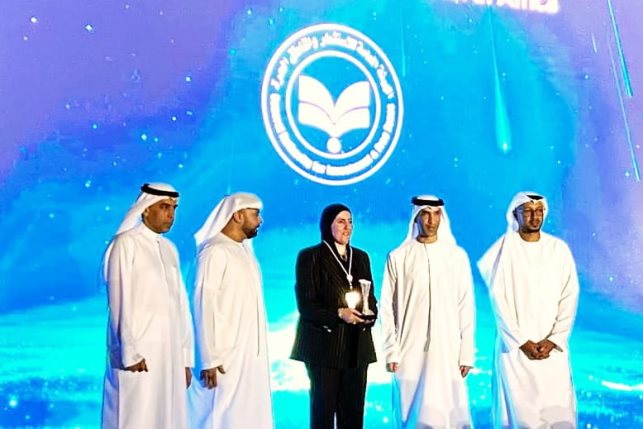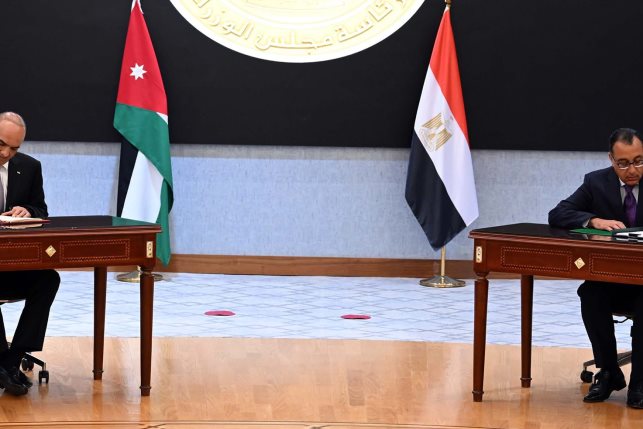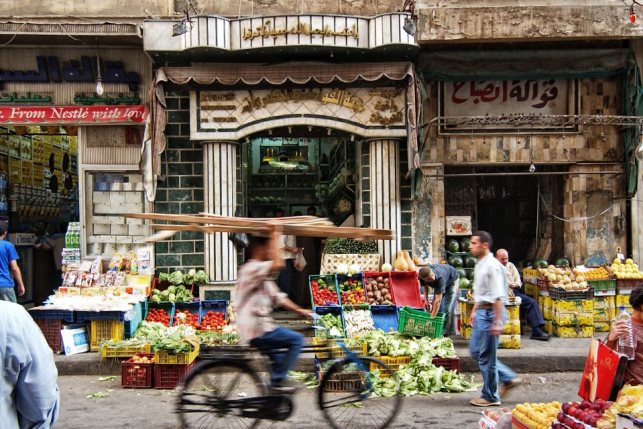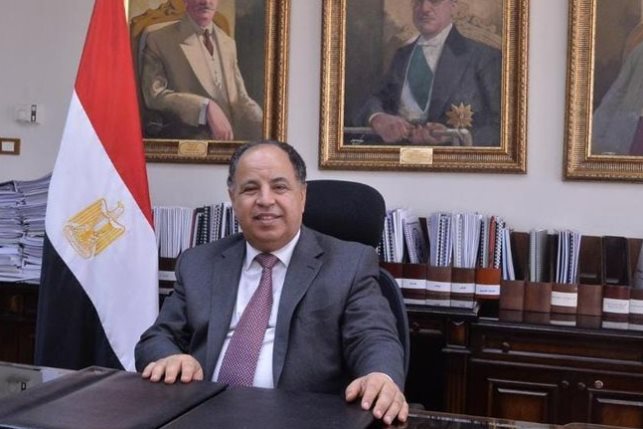Norway and Egypt foster bilateral collaboration in seafood trade and sustainable practices
Nabil added that the volume of bilateral trade between the two countries reached $174 million during the first nine months of 2023, according to statistics from the Central Agency for Public Mobilization and Statistics.

"Norway is looking forward to maximizing bilateral cooperation with Egypt to enhance trade opportunities, especially in the fruit and citrus sectors," stated Kamal Nabil, the commercial and economic advisor at the Norwegian Embassy in Cairo.
Nabil added that the volume of bilateral trade volume between the two countries has reached $200 million during the first ten months of 2023, according to the latest data from the Central Agency for Public Mobilization and Statistics (CAPMAS).
In December 2023, the Norwegian embassy, in collaboration with the Egyptian Businessmen’s Association (EBA), organized a business meeting in Cairo. The event brought together a delegation from the Norwegian Seafood Council (NSC) and officials from EBA, along with prominent Egyptian companies in the seafood industry.
The meeting focused on exploring potential collaborative ventures between Norwegian exporters and Egyptian importers. Discussions included the prospect of Norwegian companies providing essential raw materials to Egyptian factories, enabling the export of seafood to international markets, and leveraging international trade agreements between Egypt and relevant nations.


Norway, a global leader in sustainable seafood production, is making significant strides in strengthening its position as a leading provider of high-quality fish and seafood. The country's vast fjords and coastlines, characterized by consistent temperatures throughout the year, provide ideal conditions for the production of salmon and cod.
According to Nabil, Norway has been responsible for producing more than half of the world's salmon, making it the primary and largest country in salmon farming in the Atlantic Ocean. "The country's sustainable aquaculture sector continues to evolve, adapting to new developments and increasing demands in the fish trade market," he noted.
He added that the Norwegian seafood industry has witnessed the adoption of policies to ensure the provision of safe and sustainable health products to consumers globally, including Egypt.
These policies, he said, focus on maintaining the highest quality standards by adhering to regulations and laws, as well as monitoring emissions rates at a global level. Norway has been exporting significant amounts of salmon, mackerel, and salted fish to countries such as Egypt.
Kamal added that the total Norwegian seafood exports amounted to around $93.4 million. Herring was the largest among Norwegian fish exports to Egypt during the first 11 months of 2023, reaching around $42 million. Mackerel is the second with a value of $29.4 million, followed by salmon at $14.7 million.
Norway is the second largest exporting country of high-quality seafood worldwide, with 153 markets. Egypt is one of the biggest Arab countries in Africa that import Norwegian fish and seafood, Kamal indicated.
In 2023, Egypt achieved a total seafood production of approximately 2.1 million tons, boasting an 85 percent self-sufficiency rate, as reported by the Lakes and Fish Resources Protection and Development Agency. To address the supply and demand disparity, endeavors are underway to import premium seafood from nations such as Norway.
Sustainable Seafood Production
Norway's commitment to sustainable seafood production is further exemplified by its efforts to monitor the environmental impact of fish farming and its investment in advanced pioneering technologies.
Bergen, a Norwegian city widely known as the fish and seafood trade headquarters and the gateway to the Norwegian fjords, has been a prominent player in the global seafood market. The city continues to maintain its longstanding tradition of supplying locals with fresh seafood, with its fish market dating back to 1276. Furthermore, Norway is the second largest exporter of seafood globally and a global leader in sustainable fishing practices.
Norway's sustainable seafood industry and its commitment to high-quality, environmentally conscious practices not only contribute to its position as a global seafood leader but also have significant implications for global trade and bilateral cooperation.
One example of Norway's continuous efforts to maintain a sustainable seafood industry is the Norwegian Institute of Marine Research (IMR), which leads sustainable exploration efforts in the fishing industry.
Bjørn Erik Axelsen, head of research at IMR, is spearheading initiatives to promote sustainable exploration of marine resources. "IMR, recognized as one of the largest marine research institutes in Europe, is dedicated to serving as a neutral knowledge provider for Norway and the international community," he pointed out.
Axelsen emphasized IMR's role in providing advisory support for regulatory decision-making, particularly in the fishing industry. "While IMR does not have a direct regulatory role, it actively contributes to the development of sound regulations, with a focus on sustainability," he explained, adding that the institute collaborates with various stakeholders, including in Africa, to address ongoing challenges in the fishing industry.
In Norway, he said, a coastline that ranks as the second longest in the world, with a marine area that is six times larger than its land area, presents a significant monitoring challenge. The vast sea areas under Norwegian jurisdiction demand collaborative action among coastal states to effectively manage and conserve fish stocks and marine ecosystems. "IMR's dedication to responsible marine research and collaboration with international organizations like ICES underscores its commitment to sustainable exploitation of marine resources," Axelsen stressed.
The institute's research and experiments in Bergen are geared towards fostering a culture of sustainability and reducing reliance on independent research, he stated, adding that IMR conducts surveys and field efforts by utilizing modern vessel capacity. "The collaborative efforts between industry and research institutions showcase a dedicated approach to sustainability and responsible resource management."
IMR's involvement with the International Council for the Exploration of the Sea (ICES) plays a pivotal role in shaping fisheries management, Axelsen added, and IMR actively engages in the ICES working groups, contributing to the formulation of advice and recommendations for sustainable management practices. While negotiations among coastal states and stakeholders may present challenges, he said, ICES provides crucial scientific guidance through its advice, setting a foundation for discussions on resource allocation and sustainability.
In addition to its focus on fisheries, Axelsen pointed out that IMR's research encompasses a comprehensive understanding of the marine ecosystem, including the impact of various pressures and activities. The institute's efforts extend to monitoring and analyzing fish stocks, marine populations, and environmental changes, playing a crucial role in climate change and environmental research.
IMR's substantial work, according to Axelsen, revolves around standardizing data collection methods and protocols for survey operations, ensuring comprehensive and reliable information. The institute's holistic approach to research also encompasses the monitoring of the physical environment, plankton, and fish populations, providing valuable data for fisheries management and conservation efforts.
IMR's efforts reflect a forward-looking approach to marine research and the sustainable management of ocean resources, setting a commendable example for the global fishing industry.

Managing Fisheries and Marine Resources
Frank Bakke-Jensen, head of Norway's Directorate of Fisheries, emphasized the importance of promoting sustainable and profitable economic activity in the fishing and aquaculture industry.
Bakke-Jensen highlighted the Directorate's commitment to balancing commercial interests with sustainable practices in line with the UN's sustainable goal number 14, which focuses on conserving and sustainably using the oceans, seas, and marine resources.
According to Bakke-Jensen, the Directorate of Fisheries focuses on three main areas: management of marine resources, laws and regulations around fishery management, and coastal management.
They also oversee activities related to energy, windmills, tourism, oil and gas, minerals, and agriculture along the Norwegian coastline. With a network of offices and sea services, the Directorate is responsible for monitoring fishing activities, ensuring compliance with regulations, and providing support for traditional and new actors in the fishing industry.
Notably, Bakke-Jensen said, the Directorate collaborates with international partners by providing satellite-based monitoring of fishing activities and sharing expertise on sustainable fishery practices. With a focus on responsible resource management, the Directorate provides advice and mechanisms for efficient and sustainable fishing practices.
The thriving Norwegian fisheries industry employs over 33,000 people and plays a significant role in the country's economy. "The industry's focus on sustainable practices has led to effective management of fish stocks and a noticeable increase in catch efficiency," Bakke-Jensen stressed. However, he added, challenges such as climate change and shifting fish stock patterns have necessitated innovative approaches to fisheries management.
Overall, Norway's Directorate of Fisheries continues to be a global leader in sustainable management and economic growth within the fishing and aquaculture industry, setting an example for responsible natural resource management worldwide.
Leading Fish Enterprises
Brodrene Sperre, a family-owned enterprise founded in the 1930s by the Sperre brothers, has evolved into one of Norway's leading producers of wild-caught fish, according to Kjetil Sperre, the commercial director, who shared insights into the company's history, operations, and future plans.
With multiple facilities along the Norwegian coast, Brodrene Sperre has established itself as a significant player in the fish industry. Sperre highlighted the company's strong presence in the country with the highest fish industry workforce and emphasized the strategic advantage of its coastal location for fish procurement.
The company's fish buying process involves frequent auctions where priority and quality play essential roles, he explained, adding that extensive freezing and shipping procedures designed to maintain the quality of the fish are followed, especially for markets like Egypt.
In addition to supplying fish to traditional markets like Japan and the UK, Brodrene Sperre is seeking to expand its market reach by targeting more countries in regions like Africa, Portugal, Brazil, and the Caribbean islands, Sperre said.
Furthermore, he added, the company's investment in modern facilities and production equipment has enabled the processing of high-quality fish products, making Brodrene Sperre set to continue its growth trajectory and solidify its presence in the global fish industry.






